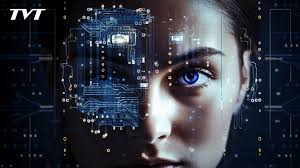Legal Regulation of Facial Recognition Technologies
Introduction
Facial recognition technologies are rapidly evolving and are being used in a variety of areas, from law enforcement to commercial and social services. However, the use of such technologies raises serious privacy and personal data protection concerns. In this article, we will analyze the legal aspects of facial recognition technology regulation at the international and national levels.
International Regulation
General Data Protection Regulation (GDPR)
The European Union is one of the leaders in the field of personal data protection, and the GDPR is the key regulation governing the use of facial recognition technologies:
- Processing of personal data: Facial recognition technologies process biometric data that is considered particularly sensitive and requires special protection.
- GDPR principles: Include legality, fairness, transparency, data minimization, accuracy, storage restrictions, integrity and confidentiality.
- The rights of data subjects: Include the right to access data, the right to rectification, the right to erasure (right to be forgotten), the right to restrict processing, the right to data portability, and the right to object to processing.
Convention 108+ of the Council of Europe
Convention 108+ is an international treaty governing the automated processing of personal data:
- Protection of human rights: Ensures the protection of fundamental rights and freedoms, especially the right to privacy.
- International cooperation: Promotes cooperation between member states in the field of personal data protection.
National Regulation
United States of America
In the United States, facial recognition technologies are regulated at the federal and state levels:
- State laws: Some states, such as Illinois, Texas, and Washington, have enacted laws governing the use of biometric data (e.g., Illinois Biometric Information Privacy Act, BIPA).
- Federal initiatives: Bills are being discussed that could set federal standards for the use of facial recognition technology.
European Union
In addition to the GDPR, the EU is developing additional regulations governing the use of artificial intelligence, including facial recognition:
- Artificial Intelligence Regulation (AI Act): Contains provisions on the risks associated with the use of AI, including facial recognition technologies, and sets requirements for their use.
Ukraine
In Ukraine, the use of facial recognition technologies is regulated by the general rules of personal data protection:
- The Law of Ukraine "On Personal Data Protection": Defines the basic principles of personal data processing, the rights of data subjects and the obligations of personal data processors.
- Activities of government agencies: The use of face recognition technologies by law enforcement agencies is regulated by additional regulations that ensure the protection of citizens' rights. You may be interested in the following articles: legal advice, legal advice, analysis of documents, legal analysis of the situation, written advice, verification of documents by a lawyer, lawyers documents, online legal assistance, online lawyer, legal opinion, legal opinion of a lawyer, lawyer online.
Ethical and Legal Challenges
Privacy and Data Protection
- Confidentiality: The need to ensure the confidentiality of biometric data.
- Consent: Requirements to obtain the explicit consent of data subjects to the processing of their biometric data.
- Transparency: Ensure transparency in the use of facial recognition technologies.

































